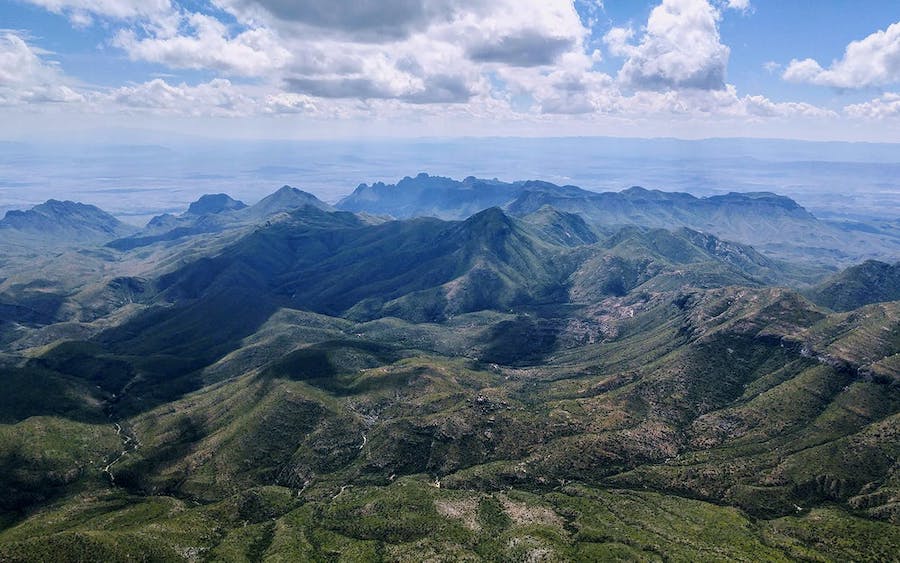Expanding Opportunities for Natural Resource Conservation in Texas

The Texas Landscape Under Threat
Texas is home to a variety of unique, productive, and biologically thriving landscapes from the Piney Woods in the east to the arid mountain vistas in the west. Each year, these lands are the root of hundreds of thousands of jobs that help generate billions of dollars in revenue to the state economy. Our land resources also provide a wealth and variety of ecological services, including wildlife habitat, flood mitigation, carbon sequestration, and clean water.
The same landscapes that so utterly define Texas are facing myriad threats.
Population growth and urban sprawl are causing our lands to become fragmented and lost to development at an alarming rate. In fact, Texas has lost more than 1 million acres to development over the past five years.
And over the next decade or two, much of Texas’ land ownership will be transferred, resulting in significant changes in land use. The window to preserve our valuable agricultural lands is closing, due to a combination of development pressures and landownership trends, and more must be done to protect them.
Conservation in Partnership with Private Landowners
The Texas Land Trust Council (TLTC) is an association of over 30 different land trusts working to conserve the lands and waters of Texas. Land trusts conserve these lands by permanently protecting them from development to benefit the people, water resources, wildlife, and economy of our state by utilizing a tool called conservation easements.
Together, landowners and land trusts are essential partners in preserving our state's natural and cultural heritage for future generations. And with more than 95% of Texas lands in private ownership, Texas’ landowners are at the forefront of conservation efforts in the state and are vital to its success.
Land trusts partner with landowners to establish and maintain conservation easements on private lands. These land trusts work with landowners interested in preventing or limiting the conversion of their land to development by negotiating a conservation agreement that will preserve the conservation values of their property in perpetuity. Once the partnership is formed, the land trust and the landowner can jointly apply for grant programs that offer funding opportunities for the easement.
The largest source of conservation easement funding in the United States is through a program of the federal Farm Bill and is operated through the Natural Resource Conservation Service. The Farm Bill provides funding to purchase agricultural conservation easements on important farm and ranch lands, with added focus on crucial natural resource features like endangered species, water resource protection, and historical preservation.
The Farm Bill provides the NRCS with the authority and funding to protect these private lands through conservation easements through programs like the Healthy Forest Reserves Program and the Agricultural Conservation Easement Program (ACEP), which offer various opportunities to conserve our forests, ranches, farms, and wetlands. The Agricultural Land Easement Program (ACEP-ALE) is dedicated explicitly to preserving working farm and ranch lands for their agricultural and natural resource values. The purpose of an Agriculture Land Easement is to prevent land from being converted to non-agriculture uses such as residential, commercial, and industrial developments.
Enhancing Future Conservation Opportunities for Texas
Historically, Texas has not been a top recipient of Farm Bill funding, despite being the largest state in the lower forty-eight. That distinction has gone to Montana, which has utilized almost double the ACEP-ALE funding of any other state. NRCS data shows that Montana received $49.3 million in ACEP-ALE funding from 2014-2018, compared to $24.2 million for Texas during that same period.
Their secret to success?
Montana developed an ACEP-ALE Coordinator position about five years ago to advance their state ACEP-ALE applications. It has proven a successful model for advancing Farm Bill conservation easement projects.
With a cohort of landowners and land trusts eager to engage in these agricultural land conservation partnerships, Texas is hoping to pursue this successful model to enhance our program applications, and in turn, our state funding for the ACEP-ALE program.
In addition, Texas now has three Regional Conservation Partnership Program grants approved that will bring additional conservation funding to our state. These grants will provide targeted funds for stewardship activities and conservation easements to the Texas Hill Country, the Big Bend region, and the Texas Coastal Prairie.
With the generous support from the George and Cynthia Mitchell Foundation and an innovative funding partnership with the Natural Resource Conservation Service, the Texas Land Trust Council has hired an ACEP-ALE Program Coordinator to work as a liaison between the NRCS and Texas land trusts, to expand access to and improve implementation of these essential agricultural conservation programs. This position allows us to expand outreach to landowners and land trusts, which will help grow interest in the program and advance new applications for funding. With this increased staffing capacity, our goal is to increase the pace of conservation in Texas dramatically.
The ACEP-ALE Program represents an increasingly important opportunity for placing lands into permanent conservation and the future looks even brighter. With new initiatives at the federal level focused on biodiversity conservation and climate mitigation, the agricultural sector will likely play a significant role. Increasing funding for these important programs will help us store carbon in our soils and vegetation while preserving wildlife diversity and the viability of our working lands.
For more information about Texas land trusts, conservation easements or the ACEP-ALE Program, or to be put in touch with a land trust to meet your conservation goals, contact us at info@texaslandtrustcouncil.org.
Lori Olson is executive director of the Texas Land Trust Council.
Alec King is the conservation easement program coordinator of the Texas Land Trust Council.

Hide Full Index
Show Full Index
View All Blog Posts